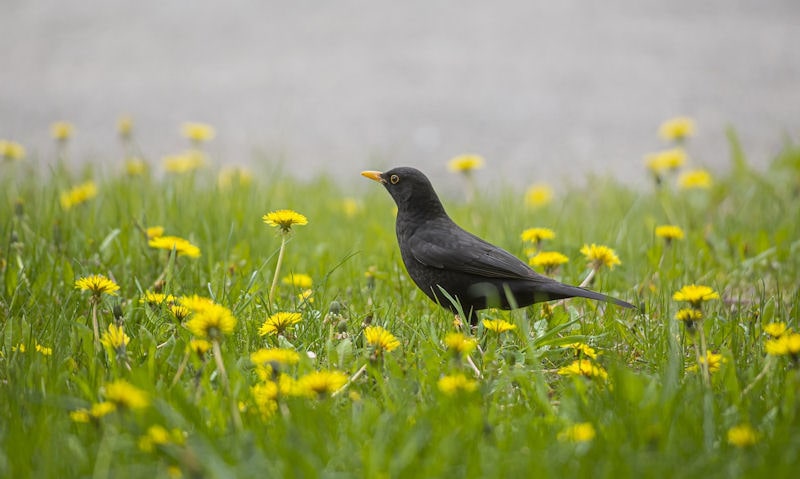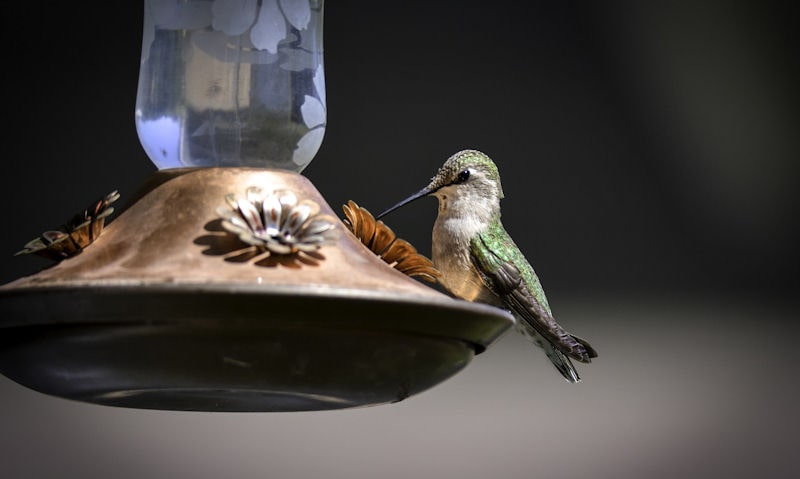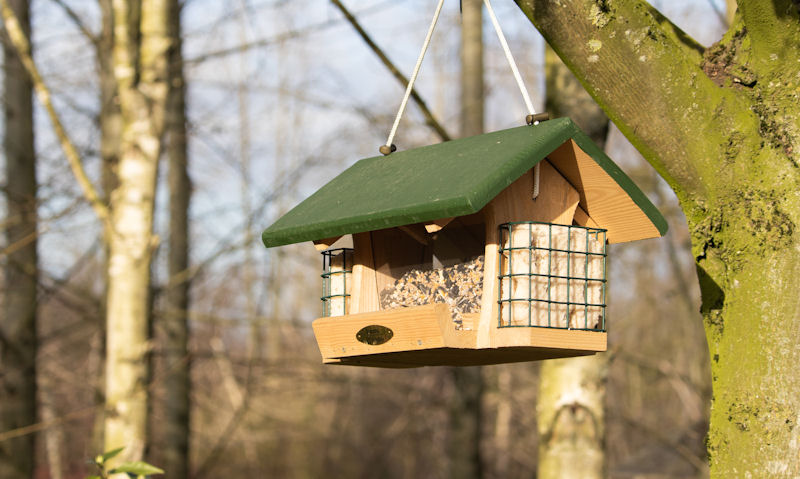Will birds eat seed off the ground
Make no mistake about it, birds are big ground eaters with common ground feeding birds preferring to eat on the lawn.
Birds will eat seeds off the ground, or more specifically the lawn as its where ground eating birds forage in the wild. Seed mixes is what these species feed on most, so the conditions are set to go. Seeds will expire so don't waste too many, while avoiding poor weather as birds feed less in torrential rain or storms.
No bird feeders are necessary to feed most birds in your yard, as they tend to be common ground eating birds in the wild, so would prefer to eat seeds off the ground.
Birds will eat seeds thrown over the lawn if that is where you must lay them down; though a spot on the deck or path to allow you to watch them feed is within reason - providing you clean up any uneaten seeds.
Seeds do rot quickly while exposed on the ground, thus the expire date will only be a few days in optimum conditions. Poor weather with heat or wet conditions can force the seeds to germinate with bacteria growing rapidly.
While far more happy to forage on the lawn rather than on the deck, birds can in turn continue to feed on what they normally eat in the wild, such as insects and worms.
As birds feed on the lawn, it can be a safer option to only throw seeds down within a 4 square feet area - as to keep wild birds confined to a more quiet, safe area in the yard.
What better way than to keep the are under the bird feeders clean then by throwing more seeds in this area. In the process any bird food thrown out of bird feeders will hopefully be eaten up in the process.
Birds eat seeds off ground
You can put bird seed on the ground in a manner you see fit, though to throw bird seeds over the lawn with care and consideration, is the way to go about.
Birds will eat seeds off the ground if only the placement is where they feel is safe, yet remains within the designated feeding area every time they visit your yard.
Rather than throw seeds all over the lawn in a wide area, it would be better to fling seeds in a 4 square foot area only. Benefit to that is birds can forage in a confined space, while avoiding the need to waste time foraging over a large area.
No shortage of common ground feeding wild birds who will eat bird seeds in your yard, with Blue Jays, Northern Cardinals, Robins and Bluebirds to name a few, willing to eat off the ground.
Seed mixes readily available is what you need to feed these birds, with sunflower seeds which must be included, as its their favorites.
When birds won't eat bird seeds off the ground, is if the yard has a pest or pet issue, or if the area is too busy with people.
Seed mixes will expire
When simply throwing bird seeds over the ground with no care in the world, remember seed mixes, as with any bird food - has an expiry date.
I therefore ask you to strategically throw bird seeds on the ground, rather than picking a random time and day.
What you can aim for is to throw the seeds over the lawn as early in the morning as you can. Only then when birds arrive to feed, the ground eaters will have the whole morning and afternoon to eat the seeds all up.
Birds seeds last longer if fed to birds in bird feeders, though when exposed fully to the elements, its reduced to a day or two only.
Feeding birds on the ground seeds only is the better option, as seeds do have a knack for lasting longer than say peanuts or suet. You will need to clean up bird seed on the ground to replace it with a new batch regularly.
How you would do that is designate your own mop and brush for cleaning bird food outdoors, pick them up by hand or brush up any seeds not eaten in time - to which its imperative not to throw seeds over a wide area.
Avoid in poor conditions
Bird seeds throw over the ground does have tendency to rot quickly when exposed to the elements, rather than stored away in a bird feeder.
What is made worse is bird seeds on the ground can and will germinate rapidly, as the atmosphere on the ground is cold, wet and can give off a lot of heat. Conditions of which are a bacteria breeding ground.
Save feeding birds' seeds on the ground until the right moment early in the morning, while forgetting it all together if there's wet weather.
Birds fed in wet conditions will eat less so in a long spell of rain, thus to throw seeds on the ground at this time will see them uneaten until the weather itself eases off.
Birds do eat in the rain providing its gentle as they continue to feed off insects or worms that come to the surface.
Seeds will be eaten but far less when worms are readily available in the lawn.
Germination process of seeds will speed up in these damp conditions, along with fewer seeds eaten can lead to a mess in your yard, including a potential health hazard.
Seeds safe on lawn
Personally, I believe how to feed ground feeding birds is on the lawn, and the lawn alone, as the area tends to be less busy, but more desirable to wild life.
It can be longer grass, a dirty patch or the boundary of the yard that has more mud then grass; as I believe birds prefer to forage in this area in which is similar to the environment they feed in the wild.
With that, birds naturally forage on the lawn more for insects and worms that are a part of their diet.
As they forage, they will notice your bird seeds to which they will hopefully eat it up. Keep wild birds as safe as can by throwing down bird seeds on an area of the lawn, in an spot no larger than 4 square feet, or less.
Birds will eat on the cement, the deck or off objects around the yard, only the lawn allows bird food to rot away without being too hazardous to you. And while seeds can allow to rot, I would recommend cleaning it up where you can before adding a new batch.
Observe the area where birds like to frequent your yard most, as this becomes the area to throw seeds.
In addition to that, the area directly below bird feeders would be a good spot for seeds.
Conclusion
I can guarantee birds that frequent your yard most will be willing to eat seeds off the ground.
Not all birds are compatible with bird feeders, as its not within their nature to use such complex devices. Eating off the ground is where all ground feeding birds forage in the wild, with seed mixes being part of their diet.
Be cautious as you go as readily available bird seed mixes can last a while in feeders, with seeds thrown over the ground expiring far sooner.
Add seeds over a 4 square feet area only to safely force birds to eat in a confined spot.
This will assist you in cleaning up bird seeds before they rot, while using the same area to throw down fresh seeds later.
Ground level feeding areas can shorten the expiry date of any seed mixes, as the germination process begins quickly with conditions so low to the ground being less than ideal. Heat, damp and insects or bugs will damage the bird mixes.
To be safe, avoid feeding birds in wet weather but as you must, add seeds to a more elevated spot, with ideally a ground bird feeder.
Lawn is the safest area to feed birds seed mixes, as seeds can rot in this area without being a slipping hazard or creating a bug infestation on the surface of the deck or path.


